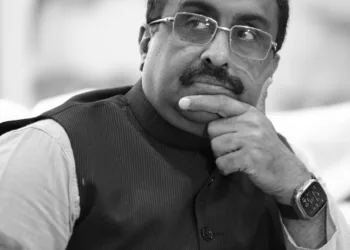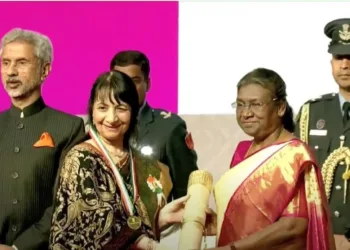The wife of an expatriate faces challenges of identity
By Pamposh Dhar
To paraphrase Shakespeare, what’s in a term? Plenty, as it turns out. The excitement of living in different countries, experiencing different cultures, is marred by attitudes and assumptions some people display towards an accompanying spouse. What others say about us should not matter, I know – but when it is repeated again and again, it can become rather irritating!
In 1993, I moved with my husband to Indonesia and found I had become an “expat wife”. By that point, I had worked in India, Malaysia and Hong Kong, as well as done short assignments in several other countries. But I moved to Indonesia on a dependant’s pass and that seemed to change everything!
“Accompanying spouse” is the term I use for those who, well, accompany their spouse to another country to support the spouse’s career development. Others use much less polite terms!
I moved with Raju a few times and always managed to find meaningful work. I often worked as a freelance journalist, steadily churning out stories for newspapers and magazines in several countries. I was happy that I was in a profession that “travelled” so well. And Raju was happy that I had work I loved.
But, of course, others did not always see things that way. Once, when I told an acquaintance what I did for a living, he asked: “Isn’t that just another way of saying you are unemployed?” No, it most certainly is not! I wasted no time in setting him straight on that score, and he had the grace to apologise.
From Indonesia, I wrote for several Singapore- and Hong Kong-based magazines. But it took me a couple of months to get accredited with the government, to allow me to work in the country.
Meanwhile, I was invited to coffee at a meeting of a women’s group. It turned out the women were all accompanying spouses who were not currently working. One of them related the story of an expatriate man who had worked in Indonesia at some stage and was reputed to have said that in his next life he wanted to be reborn as an “expat wife”.
It seems a lot of people envied so-called “expat wives” for their comfortable lifestyle: no work, plenty of money, good shopping, household helpers and babies. Many of the women, however, found their lives drab and boring. They had worked in their own countries, giving up their jobs to follow their husbands to a new country – and, in many cases, a new continent. Many of them may have found work in Indonesia, but their visas did not allow them to work.
So here they were – away from family, friends and all that was familiar, without meaningful work – and, as if that were not hard enough, written off as “wives”, mere appendages to their working husbands.
In the Philippines, when I was in a full-time job at an international organisation, I ran into an old friend, whose husband worked with me. My friend was a qualified counsellor and teacher – but every time she entered the organisation, she was asked to wear a tag around her neck announcing in bold letters that she was a “dependant”.
My husband had a similar card, although he was in a highly respected job himself. I have to say he did not seem to mind at all – partly, I think, because he is a very secure man. But perhaps it’s also that men do not get routinely written off as mere dependants, even when they are accompanying a working wife – and I have never heard the term “expat husband”! And so, I suppose, men do not constantly need to stand up for themselves.
As for accompanying wives, the worst was yet to come. Still in the Philippines, a colleague introduced me to a friend as an editor. Without a hint of embarrassment, that friend asked if I was really an editor or a “trailing spouse” who had just picked up some editing work while – presumably – trailing behind her husband. Incensed, I looked him in the eye and said with as much hauteur as I could muster: “I do not trail.”
This horrifying term had at one time gained some currency even in women’s circles. That is how insidious repetition of a term can be! Many years ago, in Singapore, at an event organised by an Indian women’s group, three speakers spoke of the trials and tribulations of a “trailing spouse”. All three are highly successful entrepreneurs in their own right!
With the third reference, I could not contain myself any longer. When I asked why they were using such a derogatory term, one of them replied that it reflected their visas as dependants. But the visa says “dependent” – not trailing! We discussed this for a little while, then I said: “Well, all I can say is, I don’t trail! Do you?” Thankfully, most of the women present shook their heads.
One of them came up to talk to me afterwards to say she was glad I had raised this issue over terminology. It turned out she was the working spouse and her husband the dependant! But I bet he was never asked if he “trailed”!
In Singapore, where I live now, it is relatively easy for both spouses to work. And I find more and more of the younger Indian women either come to Singapore for their own job, or quickly find work here. More power to them! I hope the world of “trailing spouses” is now firmly behind us.
(The author is founder of Terataii, a Singapore-based company that offers counselling, coaching, Reiki healing and meditation. Pamposh started her career as a journalist and still loves to write.)








